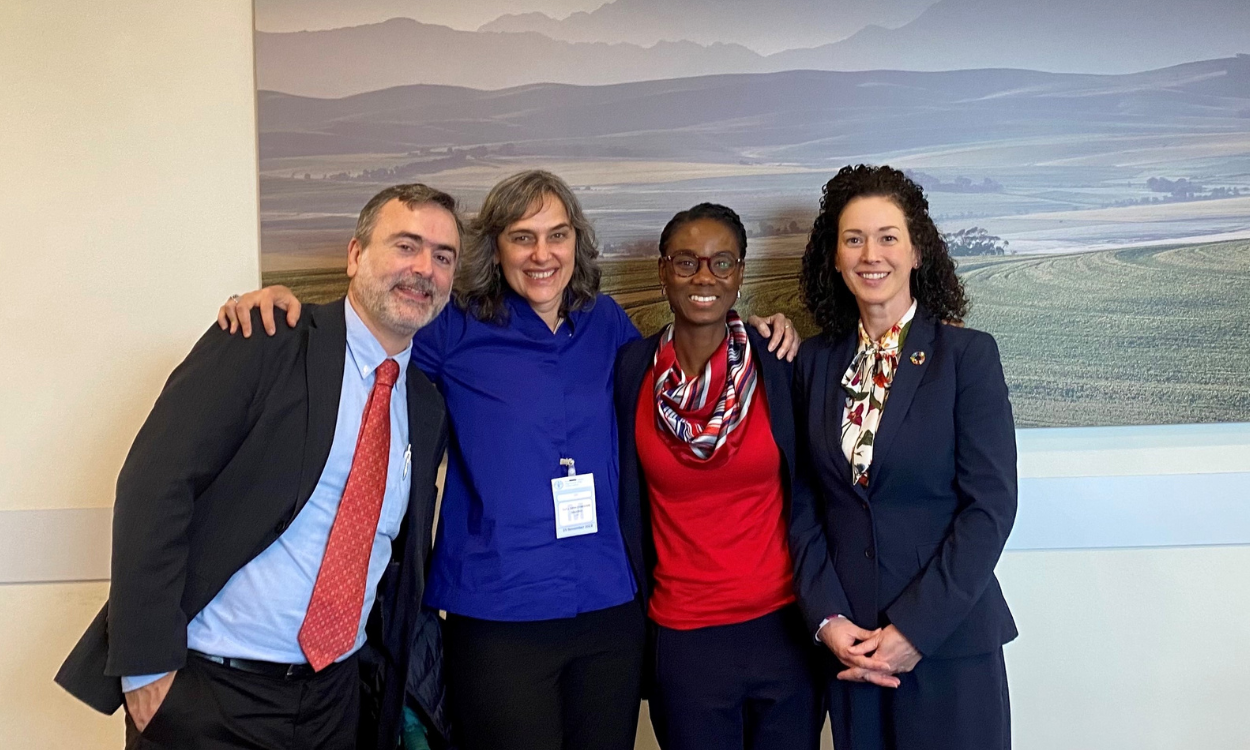SEED FUNDING JOINT PROGRAMMES
Egypt
Strengthening Sustainable and Resilient Food and Nutrition Systems in Egypt for SDG Acceleration




PROJECT TITLE | Strengthening Sustainable and Resilient Food and Nutrition Systems in Egypt for SDG Acceleration |
| Context | Egypt engaged actively in the 2021 Food Systems Summit process, convening a national dialogue and developing national pathways with recommended interventions for improving food security and nutrition by 2030. To enhance multi-sectorial coordination and spearhead the transformation process, the Government created a National Committee for Food and Nutrition Systems chaired by the Prime Minister and bringing together several ministries to coordinate joint actions. Strengthening coordination mechanisms, fostering multi-stakeholder partnerships, consolidating accountability structures, focusing on the availability of evidence, analysis, and data, are identified as key priorities to strengthen the food systems governance structure in Egypt. |
| PUNOs | WFP, FAO, UNICEF |
| Contribution to SDGs | SDG 2 Zero Hunger, SDG 3 Good Health and Well-being, 12 Responsible Consumption and Production. |
| Contribution to other SDG transitions | Climate, biodiversity, pollution |
| Duration | June 2024 – May 2025 |
| Expected financial leverage | $87,000 (PUNO co-financing) |
| Alignment with SG Call to Action | Policy integration; Food systems governance; Research, data, technology and innovation; Inclusive and participatory design; Private sector engagement |
| Outcomes | The JP contributes to strengthening policy and governance frameworks for food systems transformation and generating evidence and analysis on key dimensions of food systems to inform decision-making, supporting the work of the National Committee for Food and Nutrition Systems. The JP complements the government’s flagship program “Country Platform for the Nexus of Water, Food and Energy”, which provides a mechanism to mobilize climate finance and private investments. |
| Partners |
|
| Outputs |
|
The Hub partners with CARE for food systems transformations
The UN Food Systems Coordination Hub met with CARE leadership to discuss partnership opportunities to support national pathways implementation.

Left to right: Mr Juan Echanove, Associate Vice President, Food and Water Systems at CARE, Ms Sofía Sprechmann Sineiro, Secretary General at CARE International, Ms Sylvia Lopez-Ekra, Deputy Director of the UN Food Systems Coordination Hub, Ms Christine Campeau, Global Advocacy Director at CARE.
Developing strong partnerships for food systems transformations is a key part of our work at the UN Food Systems Coordination Hub.
On 25 November 2022, the Hub met with leadership from CARE to explore ways of collaboration to support implementation of national food system transformation pathways. CARE was extremely active during the UN Food Systems Summit preparations, serving as the lead for Action Track 4 – Advancing Equitable Livelihoods – which focused on “the elimination of poverty by promoting full and productive employment and decent work for all actors along the food value chain, reducing risks for the world’s poorest, enabling entrepreneurship and addressing the inequitable access to resources and distribution of value.”
Discussions focused on the strong value addition that CARE can provide as it is present in 100 countries working with civil society, grassroots organizations, farmers and communities to address health, nutrition and gender issues within the Food Systems Transformation agenda. Together, we explored opportunities to support on-the-ground work in countries to accelerate the implementation of national pathways.
CARE leads the human rights-based Decent Work and Living Income and Wages Coalition jointly with IFAD and ILO, and is a member of the Coalition of Action on Healthy Diets from Sustainable Food Systems, the Blue Aquatic Foods Coalition, Fighting Food Crises along the HDP Nexus Coalition, and Making Food Systems Work for Women and Girls.
The Hub and CARE leadership agreed to regularly touch base and both look forward to continuing to strengthen and leverage collaboration to help countries overcome inequalities in their food systems.
